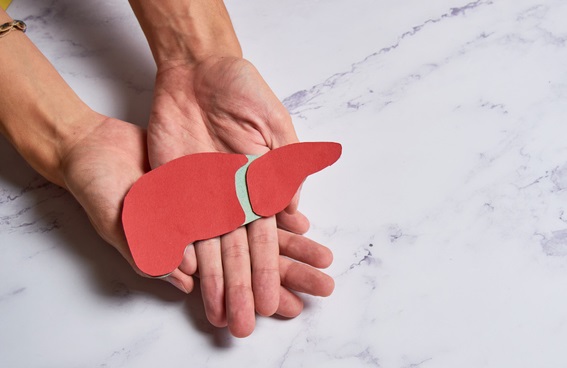
Liver transplantation is considered the last resort for recovering patients with liver function beyond repair.
According to experts, Korea's liver transplantation performance is excellent, and the survival rate after transplantation is high, so patients can feel reassured.
Living donor liver transplantation, which involves receiving a part of another person's liver, became possible in 1994. Since then, liver transplants through brain-dead and living donors have been actively conducted in Korea. According to the National Institute of Organ, Tissue, and Blood Management, the number of liver transplants increased from 1,482 in 2017 to 1,543 in 2020.
Patents receive liver transplants due to acute liver failure when liver damage progresses rapidly, chronic liver disease when liver failure does not improve, or complications that cannot be managed. While intensive internal treatment makes a recovery possible, quite a few die without a transplant.
A positive sign is that the increase in the number of liver transplants in Korea has also raised the survival rate after transplantation thanks to improved surgical methods, developed preoperative and postoperative management, and advanced immune-suppressant function.
According to the institute, the three-year survival rate for liver transplants from brain-dead people is 69.77 percent, while the three-year survival rate for liver transplants from living donors, who receive part of a healthy person's liver, is a whopping 80.10 percent. Five- and seven-year survival rates are also in the 70-percent range.
As a result, experts advised that people should rush to get a liver transplant while they can.
"If liver cancer is detected relatively early in people with chronic liver disease and significant decline in liver function, they are candidates for liver transplantation," said Professor Shin Hyun-pil of the Gastrointestinal Department at Kyung Hee University Hospital at Gangdong.
Noting that 40 percent of all liver transplant patients have liver cancer, Professor Shin added that liver cancer has a low recurrence rate when detected at an early stage with no extra-liver metastases.
“If patients can receive a liver transplant, they’d better do so sooner rather than later,” he said
Professor Lee Seung-hwan, a gastrointestinal surgeon at the hospital, agreed.
"If the surgery is successful, you can live healthily for a lifetime, not just a few more years," he said. "Especially Korea’s liver transplant performances are among the best in the world. As experience has increased, the range of patients eligible for liver transplantation has gradually expanded in recent years, and the success rate for patients over 60, who were previously reluctant to receive it, has also increased.”
However, Lee also noted that various liver complications could occur, as liver transplantation is a difficult surgery involving the linkage of many blood vessels. In some cases, they may resolve spontaneously, but in others, they may require additional treatment or even a new liver transplant, so they need to be closely monitored, he added.

